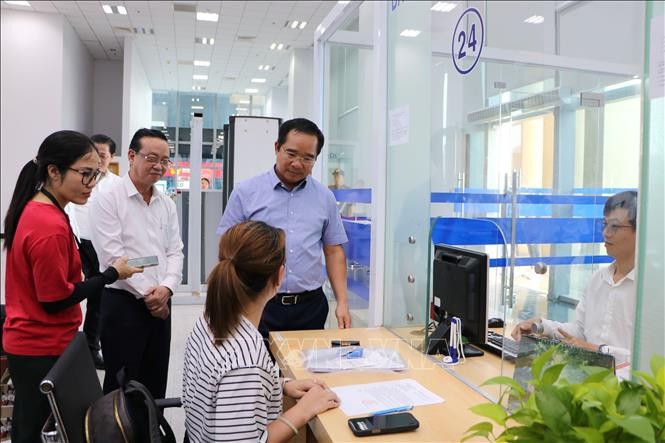
Cadres and cadre work have a particularly important position and role, which is decisive for the success or failure of the revolution. Cadre assessment is identified as the most important step in cadre work. As a strategic advisory body, in addition to advising the Central Committee, the Politburo , and the Secretariat to promptly issue resolutions, regulations, and guidelines on cadre assessment, gradually bringing cadre assessment into depth and substance, the Central Organizing Committee always promotes its responsibility to set an example in concretizing the implementation of resolutions and regulations of the Central Committee, the Politburo, and the Secretariat; gradually innovating the content, process, and methods of cadre assessment within the agency in the direction of: Consistent, continuous, multi-dimensional, according to criteria; with specific products, recognized and evaluated by competent authorities; linking individual assessment with collective and task performance results of departments, bureaus, and units under the Committee.
In order to continue to innovate and improve the quality of cadre assessment work, ensuring that it is increasingly substantive and linked to specific work results and products, on May 30, 2025, the Central Organizing Committee issued Official Dispatch No. 8679-CV/BTCTW to pilot the weekly assessment of work results for cadres, civil servants and employees, starting from June 1, 2025; which clearly stipulates the process, method, assessment authority, scoring criteria and accompanying forms.
Four steps to evaluate weekly work results
The weekly performance evaluation of cadres, civil servants and employees is carried out based on four steps. Specifically, it includes:
Step 1: Cadres, civil servants, and employees develop a self-assessment report on weekly work results (including 2 parts: results of task performance and working style, manners, sense of organization and discipline, and sense of responsibility); send it to the direct superior for management and use for comments and evaluation.
In the weekly work results evaluation report, cadres, civil servants and employees fully summarize the results and work products performed during the week; and generally evaluate working style, discipline and sense of responsibility.
On that basis, self-assessment of task performance results is no more than 80 points (including 2 parts: quality score no more than 40 points and progress score no more than 40 points); self-assessment of working style, manners, sense of organization and discipline and sense of responsibility no more than 20 points.
Step 2: The competent authority comments and evaluates the cadres, civil servants, and employees. The person directly employing the cadre comments, evaluates, and scores the results of performing tasks, working style, discipline, and sense of responsibility.
The total score of the weekly work results is the basis for evaluating the level of task completion. Specifically, excellent task completion: from 90 to 100 points; good task completion: from 75 to under 90 points; task completion: from 50 to under 75 points; task failure: under 50 points.
Step 3: The competent authority approves the weekly work results after receiving comments and assessments from the person directly employing the staff. The Board's leaders in charge approve the weekly work results of the Department Directors, Bureau Directors, Office Chiefs of the Board and secretaries and assistants. The Department Directors, Bureau Directors and Office Chiefs of the Board approve the weekly work results of the Deputy Department Directors, Deputy Bureau Directors, Deputy Office Chiefs of the Board, Department Heads, Bureau Office Chiefs, Deputy Department Heads, Deputy Office Chiefs of the Bureau, civil servants and employees under their management.
Step 4 : Summarize results and handle responsibilities. In case officers, civil servants, and employees do not complete many important tasks in 2 consecutive weeks and do not strictly comply with regulations, internal rules, discipline, order and working time; the representative of the Office of the Board and the head of the unit will directly meet with officers, civil servants, and employees to discuss, learn; and agree on directions and measures to overcome in the following weeks.
Initial results and future directions
After more than 1 month of implementation, basically, the units under the Central Organizing Committee have initially clearly recognized the requirements, purposes and importance of the pilot assessment of weekly work results; at the same time, urgently and seriously implemented the work results assessment and submitted individual and collective self-assessment reports, confirmed by competent authorities on a weekly basis.
The pilot implementation of weekly work results assessment linked to specific daily work results and products has initially created positive changes; created motivation, encouragement, promoted working spirit, enhanced responsibility of each cadre and civil servant; contributed to improving work efficiency, building strong agencies and units. Weekly work results are the basis for monthly, quarterly, 6-month and year-end evaluation and classification of cadres, civil servants and employees; contributed to arranging, restructuring and improving the quality of cadres and civil servants in the Board associated with building job positions, ensuring leanness, compactness, strength, efficiency, effectiveness and efficiency.
To continue effectively implementing the evaluation of the work results of the week, in the coming time, the leaders of the Central Organizing Committee direct departments, bureaus and units to well perform the following key tasks and solutions:
Firstly, continue to thoroughly grasp and raise awareness and consciousness of units and individuals in the agency, seriously and promptly implement the assessment of weekly work results, as a basis for implementing stages in personnel work. Departments, bureaus and units must seriously implement, evaluate fairly, impartially and objectively; at the same time, reflect difficulties and problems to the Office of the Board for synthesis and reporting to the Board's leaders for consideration and decision.
Second, each cadre, civil servant and employee in the Board needs to promote initiative in work, further enhance sense of responsibility, self-awareness and exemplary spirit; at the same time, enhance transparency and accountability of cadres, civil servants and collectives for the results of implementing work plans and assigned tasks.
Third, urgently complete the application of the Software and instructions for job statistics by job position and scoring according to the process running on the internal information network operating system (and the Internet) to serve the work of synthesizing and evaluating weekly; the software is expected to start using from August 1, 2025. At the same time, research and upgrade to assess the complexity of the job, quantify work products, serve as a basis for building job positions, performing stages in personnel work, managing personnel and determining the staffing of agencies and units.
Fourth, promote the application of science , technology, and digital transformation in monitoring, evaluating, and classifying the quality of cadres and civil servants according to the provisions of the Law on Cadres and Civil Servants 2025, as a basis for implementing stages in cadre work.
Source: https://baolaocai.vn/thi-diem-danh-gia-ket-qua-cong-tac-hang-tuan-doi-voi-can-bo-cong-chuc-nguoi-lao-dong-post648586.html








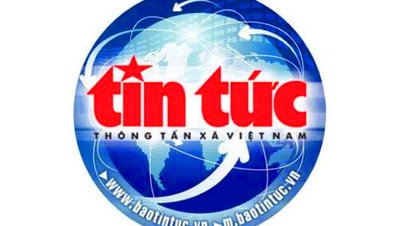

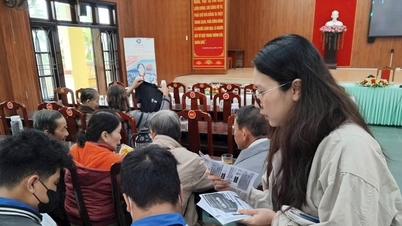




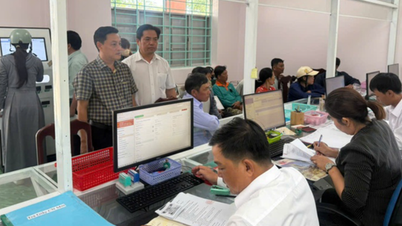



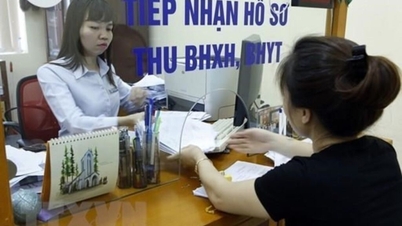





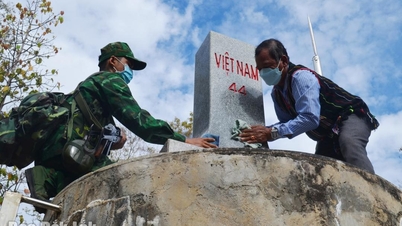










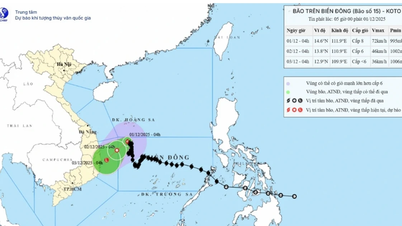


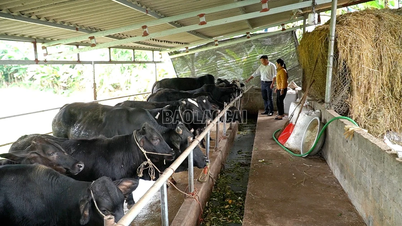


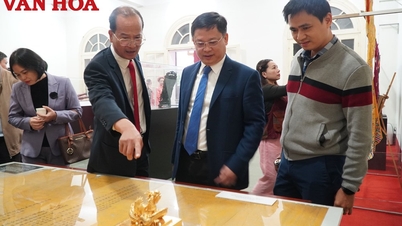
























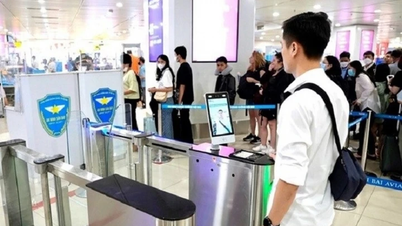























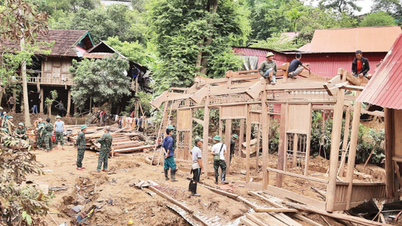






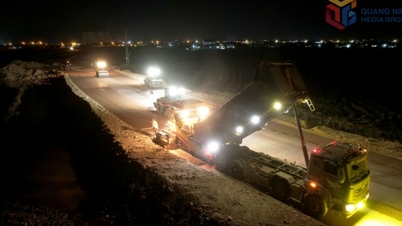














Comment (0)